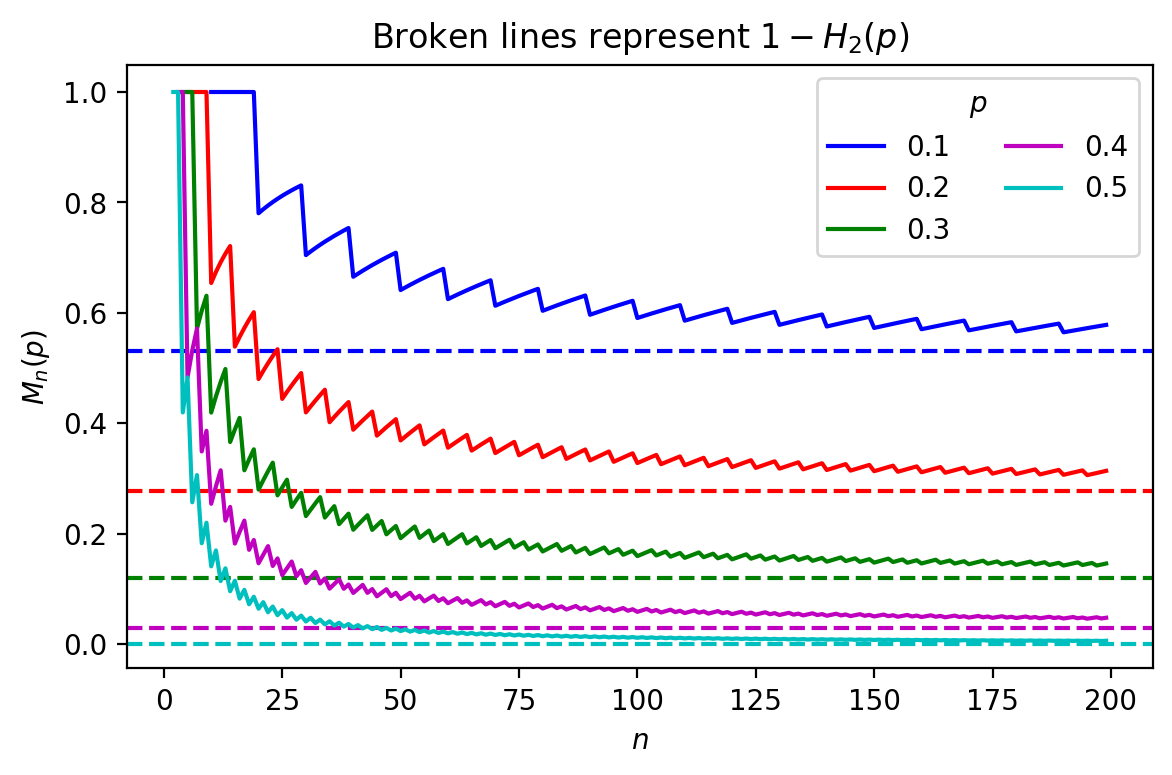Looking for a simple upper-bound for the packing number of hamming cube, I'm led to consider the following. Fix $p \in (0,1/2]$. For a positive integer $n$, define $S_n(p) := \sum_{i=1}^{\lfloor np\rfloor}{n\choose i}$, and $M_n(p) := 1-\dfrac{1}{n}\log_2S_n(p)$. Note that $B_n(p):=2^n/S_n(p)$ is a well-known $np$-packing number of $\{0,1\}^n$. For example, see https://mathoverflow.net/a/283202/78539.
I've empirically observed that
Empirical observation. $M_n(p) \le 1-H_2(p)$ for every $n$, where $H_2:[0,1] \to [0,1]$ is the binary entropy function. See figure below.
Question. Is there a simple proof for the above observation ?

